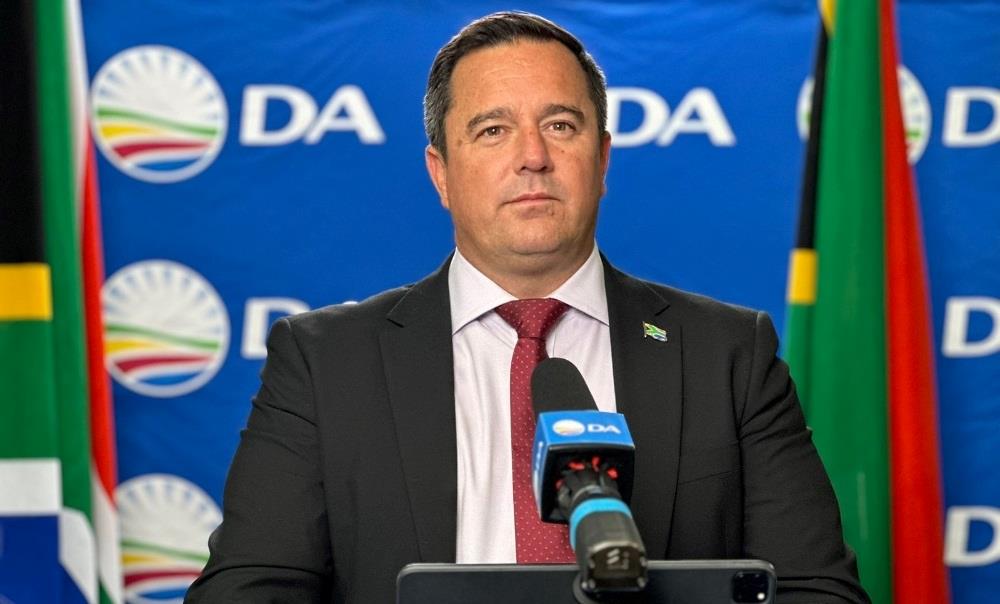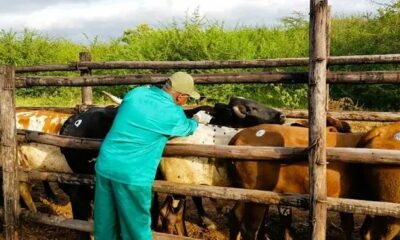News
Steenhuisen Races Against Time to Avert Crushing US Tariff on SA Agriculture

The Agriculture Minister is banking on diplomacy, partnerships and urgent reforms to keep the doors to American markets open
In what many are calling a moment of truth for South Africa’s agricultural industry, Agriculture Minister John Steenhuisen has vowed to work closely with Trade and Industry Minister Parks Tau to prevent a looming 30% tariff that threatens to wallop the country’s exports to the United States.
Speaking during the department’s budget vote in Parliament, Steenhuisen confirmed that US President Donald Trump had sent a formal notice to South Africa and other countries, announcing his intent to implement the new tariff from August 1.
While the hike hasn’t kicked in just yet, Steenhuisen warned that the countdown has begun.
“We can breathe a sigh of relief that this tariff did not come into effect tomorrow as planned,” Steenhuisen said. “But we now have a narrow window to negotiate a way forward.”
End of AGOA? The bigger risk behind the tariff
The 30% tariff isn’t just about dollars and cents. Steenhuisen suggested the move may signal the end of the African Growth and Opportunity Act (AGOA) — a long-standing US trade agreement that gives South African goods duty-free access to American markets.
Over 6,000 South African products, including citrus, wine, nuts, and textiles, benefit from AGOA. Without it, exporters face massive losses, and entire rural economies could collapse.
The agricultural sector, in particular, stands exposed. Steenhuisen said citrus, table grapes, wine, and nuts could be among the hardest hit.
A sector of two stories: Potential vs persistent risk
Steenhuisen painted a picture of an agricultural sector standing at a crossroads. On one hand, there’s the promise of job creation, export growth, and rural revitalisation. On the other, there are deep-rooted challenges: climate volatility, rising costs, disease outbreaks, decaying infrastructure, and limited market access.
“There is a human reality behind the numbers,” he said. “Families face food insecurity. Smallholder farmers are locked out of opportunity. Veterinary staff are stretched thin. We too often react to crisis instead of preparing for it.”
Strategic priorities and a food-secure future
The department’s 2025 – 2030 strategy focuses on seven pillars:
-
Public-private partnerships for growth
-
Legislative reform
-
Improved market access
-
Support for smallholder farmers
-
Biosecurity and disease preparedness
-
Infrastructure development
-
And inclusive food and nutrition security
The minister also highlighted the implementation of the 2024 – 2029 National Food and Nutrition Security Plan, coordinated with several other departments.
Debate in the House: Praise, protest and politics
The budget vote wasn’t without controversy.
-
ANC MP Dina Pule backed the budget, saying it focused on real issues, especially community-level food production and inclusion of small-scale farmers.
-
MK Party’s Andile Mngxitama fiercely criticised it, claiming the budget only serves “white export agriculture” while “the people eat chicken heads and feet.”
-
EFF MP Kenneth Montwedi went after Steenhuisen over the country’s foot and mouth disease outbreak, blaming it on the disbanding of a multidisciplinary team.
“This budget does not dismantle apartheid agriculture,” said Mngxitama.
“Foot and mouth disease is a man-made disaster under Steenhuisen’s watch,” added Montwedi.
Diplomacy or default?
With just weeks before the tariff is scheduled to take effect, Steenhuisen has little time and high stakes. His success in forging a path with Parks Tau and persuading Washington to rethink the tariff could define not only his political career but the future of one of South Africa’s most valuable industries.
If the talks fail, the ripple effects could be felt from Limpopo’s citrus farms to Cape wine estates and eventually on household dinner tables.
For now, all eyes are on the next round of negotiations. Because this time, it’s not just about trade, it’s about survival.
{Source: IOL}
Follow Joburg ETC on Facebook, Twitter , TikTok and Instagram
For more News in Johannesburg, visit joburgetc.com



























